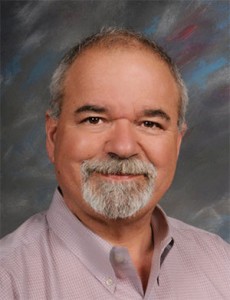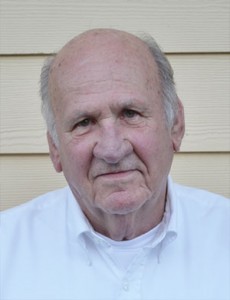Our Town asked candidates five questions focused on the challenges the Silverton City Council will face over the next four years. The questions, below, are each identified by a key word.
1. FUNDING: How will we fund needed construction, reconstruction and major repairs to our infrastructure? Most of the city’s facilities are aging and in urgent need of replacement or repair. Where will the money come from?
2. COOPERATION: How can the elected officials work together in a more cooperative and efficient manner? Too often, our council meetings are contentious and go late into the night. How will the new council improve this situation? What can individual councilors do about this issue?
3. ECONOMIC DEVELOPMENT: What can the city do to promote economic development in Silverton? Much of the cost of public infrastructure now falls on residential customers. What can be done to increase the number of commercial and industrial businesses in the city?
4. URBAN RENEWAL: How should the approximately $1 million in urban renewal funds be used to promote the Silverton economy and provide relief for residential customers?
5. PRIORITIES: How can the city better define its priorities? Too often, individual elected officials have personal agendas and priorities that are not shared by the other councilors or the residents of the city. Too often, individual councilors do not accept council decisions and move on. What needs to be done to get closure, not only for the council but also for the community, on important or controversial issues?

1. FUNDING: Currently residential utility bills pay for a majority of the needed improvements and I believe this has become a burden. To moderate or provide a reprieve to annual increases I believe promoting a collaborative discussion amongst councilors, budget committee members and city staff to reduce contingencies in the respective utility funds and system development charges (SDCs) funds should be considered and those funds used for improvements. Most of the city’s facilities are aging and in urgent need of replacement or repair. Where will this money come from? If approved by a majority of the city council and budget committee, city staff should challenge the legislative body that dictates how system development charges (SDCs) funds are spent. The city currently has limitations on how it can utilize water and sewer reimbursement SDC funds. Allowing cities flexibility in the use of those funds for needed improvements would shift or reduce the burden from the rate payer.
2. COOPERATION: The Silverton City Council protocol and guidelines document must be respected and stipulates the process to work in the best interest of the citizens in conducting the business of the city. Too often, our council meetings are contentious and go late into the night. How will the new council improve this situation? As an incumbent councilor I stand by my record of being prepared for council meetings and respect of the process as outlined in the council protocol. I also believe it is mandatory to leave personal feelings out of deliberations and conduct the business of the city in a respectful and deliberative manner. It is also the responsibility of the presiding officer to maintain a functional and collaborative effort. What can individual councilors do about this issue? Again, the Silverton City Council protocol and guidelines provides a template to follow that if adhered to should guide councilors on conducting efficient meetings.
3. ECONOMIC DEVELOPMENT: My unwavering dedication to economic development/job creation has been at the forefront of my tenure on the council. It is imperative that a “team” be created to emphasize the need to enhance economic vitality, create jobs and expand the tax base. Councilors have opportunities to participate on additional committee’s external of council duties and partnering with economic development entities should be a priority. Much of the cost of public infrastructure now falls on residential customers. What can be done to increase the number of commercial and industrial businesses in the city? The council should consider a Citizens/Councilor committee to partner with local economic development entities to fast track an “open for business” plan to highlight Silverton’s desire to grow its business community. Consideration/support of existing commercial business should be emphasized as should “community friendly” light industrial recruitment.
4. URBAN RENEWAL: Use urban renewal funds to incentivize private investment for existing and new business/job creation opportunities. Deploy a concerted effort in partnership with private and public economic development entities to market Silverton as open for business expansion and recruitment of community friendly commercial and light industrial business. Any expansion of existing business or recruitment of new business will reduce the burden on residential customers.
5. PRIORITIES: Conduct public outreach of citizen concerns and priorities through Town Hall meetings, social media and limited scope annual citizen surveys. Too often, individual elected officials have personal agendas and priorities that are not shared by the other councilors or the residents of the city. Too often, individual councilors do not accept council decisions and move on. What needs to be done to get closure, not only for the council but also for the community, on important or controversial issues? Respect the positions and decisions of fellow councilor’s and quite simply, adhere to the Silverton City Council Protocol which clearly states – Discuss issues, but not personalities with non-ouncil members. After an issue has been voted on, a council member will speak in a manner that does not undermine the integrity or motives of the council.

1. FUNDING: If the city would sell the Petit property, water and sewer issues could be addressed immediately. The downsizing of the police department could provide considerable annual income for the general fund accounts.
2. COOPERATION: Council members should review the agenda information prior to the meetings. This would shorten the meetings considerably. Many council members give extended “presentations” in opposition and/or support of their viewpoint, very time consuming.
3. ECONOMIC DEVELOPMENT: In conjunction with the owners of available buildings and sites for commercial and industrial business, advertisements could be placed in state trade publications that extol the opportunities of locating in Silverton.
4. URBAN RENEWAL: The offer of financial assistance from Urban Development monies to relocating companies to remodel structures that are available could be an attractive incentive.
5. PRIORITIES: I think that monthly articles in The Appeal or Our Town that listed the top 10 projects the city is addressing along with the projected costs and completion dates would answer the question that many residents have: “What is the city doing about the problems of roads, water or sewer problems, parks, etc.” A monthly article by different council persons would allow them to promote, complain, etc.

1. FUNDING: This is a good question and not an easy one to answer. First, we’ll need to look at all parts of the budget to see if there’s any reallocation of resources that can be made to support infrastructure improvement. Should no extra funds be available, we’ll need to find other means of funding. It will be the city council’s task to help determine the most appropriate manner to raise those funds.
2. COOPERATION: Too often, our council meetings are contentious and go late into the night. How will the new council improve this situation? What can individual councilors do about this issue? Come 2015, we as a city council must commit to a cooperative and orderly decision making process, built upon an underlying foundation of respect. It’s a given that we will all not agree. However, if we keep cooperation and respect at the forefront of every discussion, we will hopefully avoid contentious discussions that drag out and hinder the effectiveness of the council.
3. ECONOMIC DEVELOPMENT: Much of the cost of public infrastructure now falls on residential customers. What can be done to increase the number of commercial and industrial businesses in the city? We as a council will need to look at strategic growth opportunities to bring appropriate industry back to Silverton. One way we can promote these opportunities is by partnering with the chamber of commerce to help advertise and assist in finding these commercial and industrial customers. Ultimately, the customer will need to be the right fit and the city will need to determine this. However, the chamber would be a great partner to assist us spreading the word on these opportunities.
4. URBAN RENEWAL: The Urban Renewal Agency should be willing to consider, on a case by case basis, use of urban renewal funds to assist in the development of new commercial opportunities for the city. This should come in the form of (but not be limited to) both grants and/or loans.
5. PRIORITIES: Too often, individual elected officials have personal agendas and priorities that are not shared by the other councilors or the residents of the city. Too often, individual councilors do not accept council decisions and move on. What needs to be done to get closure, not only for the council but also for the community, on important or controversial issues? At the beginning of 2015, the Council will need to make a priority list as to tackle the most pressing issues in order of importance. In order to effectively tackle these issues, our personal agendas will need to be checked at the door when we enter the chambers and we must keep the best interest of Silverton 100 percent front and center. Personally as councilors, we may not agree with all decisions. However, once the council has spoken we will need to accept that decision and move on.

1. FUNDING: The fees that were enacted by the current city council in 2013 have started to address this problem, though those amounts don’t come close to what is needed. Supporting logical and controlled growth will generate system development charges that can be applied to capacity increasing upgrades. Addressing the Pettit Property and the $1.2 million of sewer fund money tied up there and finding a short or medium range solution for repaying the sewer fund will help. Prudent budgeting will continue to be an important issue each year as we have to address our aging infrastructure before its a problem that demands immediate action.
2. COOPERATION: The voters simply must elect council members and a mayor who can sit down and have a respectful debate that leads to consensus or at least a democratic decision. Most of the council is able to do this today, but there are a couple that have not or cannot master these skills. There is a fine line between “contentious” arguing and a civil debate. Again, these are life skills that are critical to a governing board and the elected officials must be willing to develop and use them. Late night meetings are fine if that’s required due to a volume of important material. However, in the last 20 months, late nights are a direct result of failure to limit public comment to the allotted time (it’s designed to start a conversation rather than to be the entire conversation), and a failure to stop combative discussions. That responsibility falls on the mayor and it isn’t being done successfully now. An individual councilor – in the absence of mayoral leadership – can and should speak up. Have the city staff run the timer so there are no politics involved, ask for the floor and urge the mayor to terminate the argumentative conversations that have strayed from an issue based discussion. Most importantly, however, an individual councilor can lead by example.
3. ECONOMIC DEVELOPMENT: The Silverton Urban Renewal Agency (SURA) has existed since 2004 and is in place to facilitate – among other things – economic development related investment in our commercial and industrial areas. It has been only modestly used – despite having a number of projects approved. For two years I have advocated expanding the SURA board (which is now just made up of the council) to include stakeholders – the property owners and business owners who actually pay into the fund. Until these people have a legitimate voice in how the district and their funds are managed. it will be difficult to move forward. That said, the city must maintain its partnership with the chamber of commerce who, along with SEDCOR, have led the way in recruiting businesses to Silverton. They have been specifically instrumental in seeking an occupant to vacant industrial sites. The city is not in the economic development business, but should encourage policies and partnerships that directly address the need and obvious benefit of improvement in that area.
4. URBAN RENEWAL: Grants and loans when appropriate to fledgling businesses that will result in increased property value in the district. Infrastructure related improvements within the district that improve the opportunities for commerce. There is a dangerously aged sewer pipe under Main Street that was slated to be replaced as part of the Streetscape Improvements that were approved by the district years ago but never completed. If it blows tomorrow, the tab will be paid by residents, but we have numbers of opportunities like this to pair an infrastructure improvement with SURA projects.
5. PRIORITIES: There are differences between a councilor who is passionate about a clear matter of public interest such as economic development or sewer and water rates vs. a councilor who continues to push an agenda that in no way reflects public demand. Spending $14k on a study (just a study) to determine if we can store treated water in an old aquifer was a great example. We don’t need water storage in that area, every member of the council concedes that we wouldn’t use such storage for 15-20 years, and in my opinion, a study 15-20 years old would be outdated by the time we needed it (if ever). That’s the difference between a personal agenda and a public priority. Councilors agree to support the decisions made by the body. It’s one of the things they swear an oath to at the start of their term. Majority rules. It’s democracy. To fail to accept that and pursue alternative means of changing something is an effort to invalidate the process of elected representation. Several times, the same councilor has taken his case public, submitting misleading arguments to the voter’s pamphlet to oppose the pool levy in 2012, and now leading a process to change the city charter in order to try reverse a decision that was democratically made. It’s frustrating. At times the public fails to get closure because misinformation is allowed to circulate. It’s the mayor’s job to stand up and clarify facts in order to aid in this process. The mayor can still have an opinion, and vote accordingly, but he or she must balance their role as a legislator with their role as the council spokesperson who can provide that closure. As far as closure for councilors goes, it’s relatively simple – if I can’t reasonably convince a minimum of three other people that my idea has merit, it’s time for me to look in the mirror and decide if A. I’m not doing a good enough job in explaining myself or B. My idea isn’t ultimately one that should be approved. The public has a terrific opportunity to make adjustments in philosophy to the city council. It’s called an election and it happens every two years. Ultimately, if we continue to have elected representation, members of the council need to learn to accept a decision that has been made by the body as a whole.

1. FUNDING: This is a very difficult issue to address. Our infrastructure is typically funded by dedicated dollars that include fees for services, bonds, or grants. Federal and state grants are few and residents feel our current service fees are too high. It appears the only remaining option would be to look at a general obligation bond that would be paid back through property tax. A detailed list of projects would need to be developed, discussed with the residents, and then presented to the voters for bond approval.
2. COOPERATION: In order for elected officials, whether new or currently on the council, to work effectively together, they must treat each other, staff and residents with respect, trust and seek to understand others’ points of view first. The council must also work together cooperatively and focus on what is in the best interest of the larger community and not just special interests. Councilors must be more proactive by getting out into the neighborhoods and taking the time to listen to what residents want before making decisions. These steps would help to ensure that the residents of Silverton are represented and the councilors are part of the solution and not part of the problem. To shorten the meeting, members of council need to come prepared. They need to review the council packets, speak with staff ahead of time if necessary, and stay on point when having a discussion. Individual councilors can help the above issues by adhering to and holding each other accountable for following the adopted city of Silverton Protocols and Guidelines. This would help in making the meeting run more efficient and respectfully.
3. ECONOMIC DEVELOPMENT: We have several tools that can be used to entice businesses to our community and promote economic development. One tool is to use the urban renewal money as it was intended. It was designed to allow for tax increment financing, where the district can borrow the necessary money now and make it available to businesses in the form of a grant or loan to help them with improvements, as well as, to replace much needed infrastructure in the community, all which foster economic growth. Another tool is to use our Urban Enterprise Zone to encourage development by offering tax concession to attract investments and private companies into our town. We need to be more proactive in letting both local and prospective business know that Silverton wants to use these tools to support businesses in our community.
4. URBAN RENEWAL: I would divide the money between business improvements to foster economic development and sewer/water infrastructure to reduce costs normally required to be paid by the sewer or water fund. This approach would provide relief to residential rates. Also, I would like to see some of the existing urban renewal funds used for marketing and promoting Silverton, in an effort to bring new businesses to our community. New business would increase the number of jobs, new home starts, and our tax base, which would provide some relief to residential customers over time.
5. PRIORITIES: I believe the city council can better define priorities by first, being proactive and getting Silverton’s residents involved and hearing what they want. Second, review the current budget, CIP’s, and any other information that address our infrastructure need. Then, using all of the information to develop a strategic list prioritizing what is most important as 1st, 2nd, 3rd, and so on. After the list of priorities is complete, use it when issues come before council. If it is not a listed priority, it is not funded or approved. Once a decision is made, council moves on. This ensures that the public is heard and individual agendas are minimized. Closure on issues before the council and the community can only come about if individual council members are committed to making the tough decisions. Council members must make sure items held over are not lost and do come back to council meetings for a final decision.

1. FUNDING: Selling the Petit property and repaying the sewer fund seems like an obvious option for a big kick-starter. Although, without analyzing the entire budget and considering a long-term strategic plan for each department, any answer proposed would be premature. I also believe the current ballot measure limiting council’s authority to raise fees is ill advised. I adamantly agree that our infrastructure needs wholesale upgrades and council and constituents, alike, need to carefully consider all options and their repercussions.
2. COOPERATION: A team is most successful, not when one person tries to convince others that their fully developed plan is the only intelligent option. The best solutions are more often developed by groups that allow ideas to evolve through input from multiple parties. Council, including the mayor, must be capable of respectful disagreement in and out of chambers and move on to the next issue when you find yourself in the minority. At meetings, councilors should limit comments to the topic being discussed and avoid redundant testimony.
3. ECONOMIC DEVELOPMENT: I do not believe it is the city’s responsibility or expertise to “promote” economic development. We should continue to support and partner with entities, such as the chamber of commerce and SEDCOR, which do have that mission. We also have a comprehensive development code that should be followed when considering new construction and change of use for existing facilities. We must not impose subjective restrictions that drive away business. Nor should we be overly lenient in allowing variances that would fundamentally alter the nature of Silverton.
4. URBAN RENEWAL: Answering this very specific question in this forum without analyzing the big picture would be a disservice. Former Councilor Kyle Palmer has, for years, been advocating the expansion of the Urban Renewal Agency to include property and business owners within the district. This would be a good start in the decision making process. I also would support developing objective guidelines for grant and loan programs tied to measurable employment requirements. As it stands now, decisions are completely subjective and applicants are given zero direction on what it takes to qualify.
5. PRIORITIES: The city needs a strategic plan based on public input to remain focused on short and long term goals for growth, development and maintenance of systems. When expenditures in staff time or public funds are suggested, it can be determined whether a given proposal is a viable part of that strategy or a distraction from it. In the same way that private industry functions, the city must plan the work and work the plan.

RANDAL THOMAS
1. FUNDING: Silverton faces many challenges in regards to its infrastructure. From managing increased traffic congestion to repairing aging sewer and water systems. Continuing revitalization of the downtown area to improving park and recreation opportunities. A pool levy that expires soon without a plan for continued pool operations. Street maintenance, job creation, in-filling an empty industrial park, and ensuring the success of the Oregon Garden all contribute to livability. Please know, these economic times are increasing city budget pressures while placing demands for more city services. Combined with our aging infrastructure in dire need of repair; strategic fiscal management and oversight, while preserving rate stabilization, will be major keys to maintaining our current livability and small town feel. We also must remain mindful of both our elderly residents, often who are on fixed incomes, as well as young families in keeping city services affordable.
2. COOPERATION: City council members need to understand their role within city government and respect the diverse opinions of other council members so all views can be represented. Essentially, councilors act as the legislative and policy-making body of city government. As individuals, councilors have no expressed powers. Only a majority of the council can approve policies or enact ordinances. Once the council makes a decision, those on the losing side of the vote should not undermine the council’s decision or expect staff to represent their views. The council has adopted protocols that all councilors should honor; and if needed, be enforced by a majority of the council.
3. ECONOMIC DEVELOPMENT: First and foremost, I believe that the city should always tout our diverse business environment, welcome business growth and expansion in our city and always encourage people to come spend their money in Silverton. City government can help promote business growth through economic development and urban renewal. Grants to attract and promote business development as well as tourism should be viable options at Silverton’s disposal. I believe the city needs to invest in the proper infrastructure and public safety measures to promote and support a positive business climate. Finally, my wife is a Silverton small-business owner. We are keenly aware of the challenges small-businesses face in trying to keep the doors open, especially in a small town. Local government should encourage small-business growth and not hamper growth through burdensome local regulations.
4. URBAN RENEWAL: My first exposure to Silverton government was sitting on the Downtown Revitalization Committee (DRC) task force in 2002. The purpose of the task force was to provide recommendations to the city council on policies that could help lead to a more vibrant and viable downtown core. One of the recommendations that came out of the DRC was creation of an urban renewal district. Urban renewal funds are created through incremental tax revenues from the incremental assessed value (baseline upon the districts formation) of property taxes within the urban renewal district. I believe the primary focus of URA funds should be economic development and include activities such as grants to attract businesses, grants for improvement of businesses property’s, as well as streetscape projects, to name a few. My record reflects continual support of URA grants to bolster economic development as demonstrated through votes in support of grants to building improvements for Seven Brides Brewing, facade/interior improvements at the Main/First Streets building, and most recently for building improvements to accommodate the relocation of Compex2, to name a few.
5. PRIORITIES: Effective councils develop a vision for the community and establish goals. They involve the public in the decision process. Once the goals are adopted, they create strategic plans and policies that align with the vision. Staff and the council then work towards achieving the goals adopted by the council. This process lends itself for staff and council to stay focused towards the adopted council goals and not become distracted by a councilor’s individual personal agenda.

SCOTT WALKER
1. FUNDING: When asked about how the condition of Silverton is infrastructure compared with other Oregon cities of similar size, the former public works directors has said it is average. The sky is not falling. We do need to address the needs of our sewer, water and roads. Typically the funding for these efforts comes from the charges for water and sewer and from our local shares of the state gas taxes. In the current city budget a million dollars is taken from these accounts to pay for general fund (property taxes) activities like the police, administration and parks. We have an additional problem with the sewer system. The sewer system owns an 80-acre parcel (Petit property) whose appraised value is $1,795,000. With only 10 buildable acres, the city is proposing selling three prime acres for $300,000 to Moonstone Resort. Over seven years ago, the city sold Moonstone nine acres for its hotel. We received the first payment on that purchase in July of 2014. We need to stop sending our infrastructure money to the general fund and to sell the Petit property for the highest possible price.
2. COOPERATION: The city charter gives the mayor the responsibility for running council meetings.
3. ECONOMIC DEVELOPMENT: The city should continue working closely with SEDCOR to promote economic development in Silverton.
4. URBAN RENEWAL: To reduce our interest costs the Urban Renewal Agency should continue making extra payments to the school board on the purchase of the Westfield property. This would provide more funds for future economic development projects.
5. PRIORITIES: The fact of life is that democracy, in the short run, is not an efficient form of government. The role of the council is to speak for citizens and to employ the city manager. Individual councilors have all the rights as other citizens and ultimate closure on issues come from the ballot box.